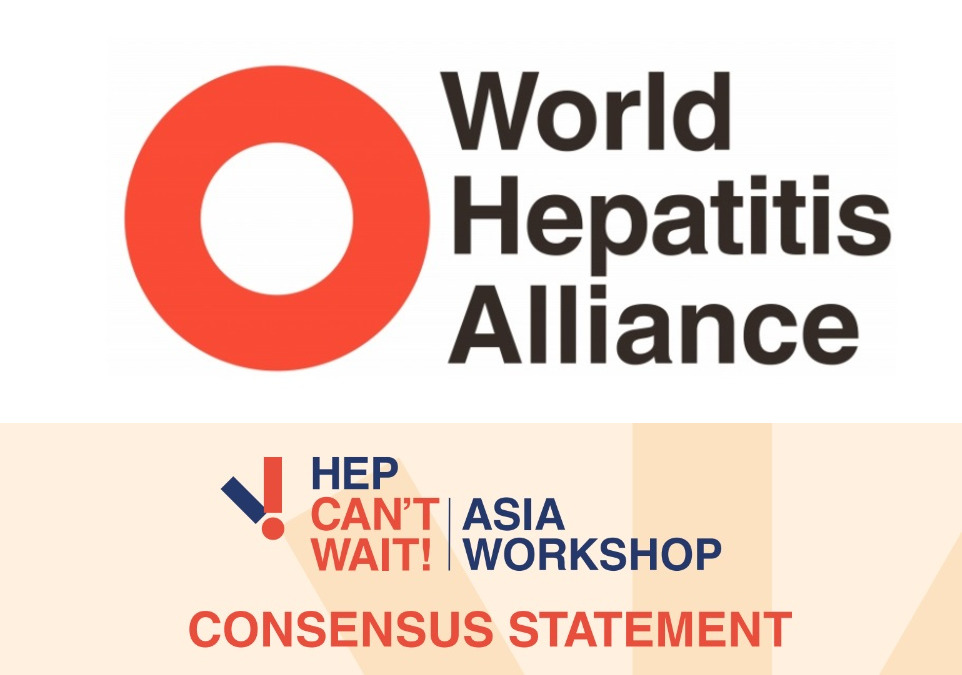
Graphics: Biospectrum Asia
The World Hepatitis Alliance (WHA) published a consensus statement developed by community-based organizations including recommendations on how the Asia-Pacific region can work together to achieve viral hepatitis elimination by 2030.
The recommendations were agreed following the ‘Hep Can’t Wait’ Asia Workshop, a first-of-its-kind viral hepatitis community workshop organised by the WHA and supported by Gilead Sciences Ltd., which took place in Hong Kong from 11 – 12 July 2023.
The workshop convened 22 community-based organisations and clinical experts from 11 countries in the Asia-Pacific region to exchange ideas and new approaches to eliminate viral hepatitis elimination by 2030 as a collective.
Consensus recommendations on approaches for hepatitis B elimination in Asia provide guidance on improving testing strategies, increasing access to prevention, care and treatment, and supporting linkage and retention to care. The consensus statement also includes agreement on reducing stigma and the laws, policies and practices governments, health care systems and private sector organisations must adopt and enforce. The World Health Organization (WHO) estimates that 296 million people worldwide live with hepatitis B, with Asia representing more than 50% of people living with chronic hepatitis B and C.
In a regional liver index study that surveyed the Hong Kong public on knowledge, attitudes, and behaviour towards viral hepatitis, it was found that diagnosis and treatment uptake rates in Hong Kong for viral hepatitis are significantly lacking, hovering around 50% compared with the WHO’s 90%/80% targets. Lack of awareness and public knowledge, access to testing, and stigma remain key barriers in the fight against viral hepatitis. The index study data points to an urgent need for action across all stakeholders, calling upon a multi-sectoral collaborative approach. This approach includes raising public awareness, increasing education on virus transmission, and empowering communities through new ways to support screening, linkage to care, and disease management.
The two-day 2023 ‘Hep Can’t Wait’ Asia Workshop offered delegates valuable insights on the region’s progress in the elimination of the disease. Sessions gave participants the opportunity to discuss topics such as improving access to testing, care, and treatment for people living with viral hepatitis. Crucial areas, including novel approaches to health financing as well as the implementation and integration of innovative viral hepatitis services, allowed for exchanges of best practices that can be adapted and applied across different geographies in Asia.
One of the key takeaways was the pivotal role of communities in the hepatitis response and the need for collective action to catalyse greater change. This culminated in a consensus statement developed by the community-based organisations. It seeks to inform community-based organisation approaches in Asia-Pacific moving forward, serving as a roadmap to eliminating hepatitis B in the region.
Cary James, Chief Executive Officer, World Hepatitis Alliance said, “Viral hepatitis is often easily overlooked and under-prioritised. But it does not have to stay this way. This workshop is a rare opportunity for community partners from the region to come together to share best practices and develop innovative new solutions to address persistent problems. The consensus provides direction that all stakeholders can reference moving forward in order to accelerate our progress in eliminating viral hepatitis.”
Professor Man-Fung Yuen, University of Hong Kong said “Despite medical advances made in the hepatitis B space, there is still more to be done when it comes to elimination of the disease in the Asia-Pacific region. With the world coming out from the pandemic, the 2023 ‘Hep Can’t Wait’ Asia Workshop is especially timely as it brings together the community-based organizations who are the changemakers on the ground and industry experts to come into consensus on what action needs to be taken moving forward. This is a significant milestone as we work towards triple elimination by 2030.”
“Eliminating viral hepatitis by 2030 requires a collaborative effort, which is why Gilead is proud to support the 2023 ‘Hep Can’t Wait’ Asia Workshop, an initiative that provides a valuable platform for community-based organisations to share best practices, forge partnerships and leverage opportunities for collaboration. There is no time to lose as we work together to increase awareness around liver disease and develop creative ways to boost testing and vaccination rates across the region,” said Sarah Swift, Vice President, Public Affairs, Gilead Sciences.
Consensus Statement Hightlights:
With a significant expansion of affordable and accessible vaccination, testing, care and treatment, World Health Organization aims to eliminate hepatitis B by 2030 in the APAC region.
Driving the initiative, delivering innovative programming, challenging stigma and discrimination, advocating for policies to improve access, and supporting those living with hepatitis B is cruicial. Patient community and HCP involvement to lead the initiative is imperative in achieving the hepatitis elimination goals.
To drive transformative change within the region, countries must adopt a resourced public health response centered on human rights and the lived experience of people with hepatitis B. Within this response, we call for the following:




